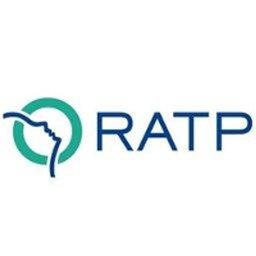FIND_THE_RIGHTJOB.
Risk Analyst
JOB_REQUIREMENTS
Hires in
Not specified
Employment Type
Not specified
Company Location
Not specified
Salary
Not specified
Risk Analyst
- Fixed-term contract
- Full-time
- At least 2 years of experience (Junior level)
- Bachelor degree
- Strategy Analyst
Mission
JOB PURPOSE:
To support the development and execution of a robust risk management framework that enables the organization to identify, assess, and mitigate operational, strategic, and organizational risks. This role fosters a proactive risk culture by delivering insightful analysis, facilitating risk-based decision-making, and ensuring alignment with industry standards and internal compliance requirements.
Profile
RESPONSIBILITIES/DUTIES
Risk Management Framework & Governance
- Support the implementation and continuous improvement of the organization’s Risk Management System.
- Contribute to the review and enhancement of risk management policies, frameworks, and procedures in line with ISO 31000.
- Assist in maintaining and updating the corporate risk register, ensuring data accuracy and relevance.
Risk Assessment & Analysis
- Conduct qualitative and quantitative risk assessments using standard tools (e.g., risk matrices).
- Identify and evaluate current and emerging risks based on operational data, incident trends, and stakeholder input.
- Recommend appropriate mitigation strategies and monitor changes in risk exposure.
Risk Reporting & Documentation
- Assist in preparing risk reports, dashboards, and presentations for internal stakeholders and risk review panels.
- Track progress on the Annual Risk Plan, ensuring timely delivery of key milestones and reporting metrics.
- Maintain accurate records of risk events, assessments, and control measures.
Operational Support & Cross-Department Coordination
- Work closely with departments to assess and document operational risks and service delivery vulnerabilities.
- Coordinate risk mitigation actions and ensure follow-through on departmental risk control plans.
- Support internal audits and site inspections to evaluate risk control effectiveness.
Change Control & Incident Management
- Collaborate with change control processes to identify risks associated with operational or organizational changes.
- Review risk-related incidents and contribute to root cause analysis and preventive action planning.
Culture & Awareness
- Support internal awareness campaigns and training initiatives to strengthen risk-aware behaviors across the organization.
- Promote integration of safety and risk responsibilities by reporting hazards and assisting in risk alignment with health and safety procedures.
General & Ad Hoc Duties
- Provide assistance during internal and external audits related to risk management.
- Perform other responsibilities as assigned by management to support enterprise risk management goals.
SAFETY RESPONSIBILITIES:
- Promote a positive safety culture within the workplace and attend any safety-related meetings or briefings as required within the job role.
- Comply with the requirements of RDMC RQHSE Policy and Safety Management System.
- Be mindful that Safety, Security, and Environmental protection are everyone’s responsibility. All staff members are accountable for reporting and intervening in any Safety, Security, or Environmental violations.
ESSENTIAL QUALIFICATIONS, KNOWLEDGE & EXPERIENCE
QUALIFICATIONS:
- Bachelor’s degree in Engineering, Business, Risk Management, or a related field.
- Professional certifications in Risk Management (e.g., ISO 31000, CRM) are an advantage.
- Fluent in Arabic and English, French is a plus.
KNOWLEDGE:
- Solid understanding of risk management principles and frameworks.
- Knowledge of incident investigation, root cause analysis, and risk control evaluation.
- Familiarity with change control, safety regulations, and internal audit methodologies.
- Proficient in Microsoft Office Suite; experience with risk management tools is a plus.
EXPERIENCE:
- 3–5 years in risk management, safety, quality, or operational analysis.
- Hands-on experience with risk registers, dashboards, and coordination of mitigation actions.
- Exposure to infrastructure, transport, or industrial sectors is preferred.
- Demonstrated capability in data analysis and reporting within a multidisciplinary environment.
DESIRED BEHAVIORS & EXPERIENCES
- Analytical Thinking: Demonstrates strong problem-solving skills with the ability to evaluate complex data and extract meaningful insights.
- Communication: Excellent verbal and written communication skills, including report writing and presenting to stakeholders.
- Collaboration: Effective team player with the ability to engage across departments and build strong working relationships.
- Adaptability: Flexible and resilient when managing changing priorities and high-pressure situations.
- Proactivity: Takes initiative in identifying risks and proposing solutions without waiting for instruction.
- Organizational Awareness: Understands how risk affects strategic objectives and contributes to effective corporate governance.
- Accountability: Takes ownership of assigned tasks, meets deadlines, and ensures quality delivery.
- Attention to Detail: Maintains accuracy in documentation, risk reporting, and compliance tracking.
- Integrity: Maintains confidentiality and upholds the highest standards of ethical conduct in all aspects of work
Location
Cairo, Cairo, Egypt
Similar jobs
UN Women: Regional Security and Safety Specialist, Cairo, Egypt, P4 FTA
United Nations Development Programme
Egypt
5 days ago
Senior Financial Analyst
Talaat Moustafa Group
Giza, Egypt
5 days ago
Senior Consultant/Manager
Deloitte
Giza, Egypt
5 days ago
Security and Compliance Specialist
Flairstech
Egypt
5 days ago
Mid-Cap Credit Risk Analyst
Banque Misr
Cairo, Egypt
5 days ago
ETIC, Cyber Risk Senior Manager
PwC
Egypt
5 days ago
Business Analyst | Strategy & Transactions | Infrastructure & Real Estate | Infrastructure & Capital Projects | Egypt
Deloitte
Cairo, Egypt
5 days ago
© 2025 Qureos. All rights reserved.
